In October, a European industry association published a strong-worded position paper that details how EU manufacturers suffer from the “malfunctioning of the U.S. certification market,” due to Underwriters Laboratories’ “abuse of its dominant position.” The paper’s author, Orgalime, is the European Engineering Industries Association that represents some 130,000 companies in the mechanical, electrical, electronic, metalworking & metal articles industries of 22 European countries.
The complaint centers on the certification of components like control devices, circuit boards, cables, electrical connectors, power supplies, and switching devices. Although component safety certification is not required under U.S. regulations as governed by Occupational Safety and Health Administration’s (OSHA) Nationally Recognized Testing Laboratories (NRTL) program, most component manufacturers do it anyway, to give confidence to end product manufacturers that are integrating the component.
There are 16 current NRTLs including MET Labs, according to the OSHA NRTL list. All the NRTLs have the same legal standing and are viewed as technically equivalent, if their scopes of accreditation include the same U.S. national standard. According to Orgalime, only one NRTL – UL – will categorically reject any component certification issued by another NRTL lab. UL will issue a certificate for a complete product in which electrical components are embedded only if UL itself has certified the electrical components beforehand.
This is significant because UL controls more than 50 percent of the safety certification market, due to years of enjoying a virtual monopoly position. The market was opened up in 1988 due to action initiated by MET Labs, but the legacy of market dominance continues.
According to Orgalime, this practice of denying recognition of component certificates delivered by other NRTLs causes a “de facto quasi-monopoly situation” from the component manufacturers’ viewpoint. “This behaviour not only restricts the freedom of choice of manufacturers, but also proves to be expensive and causes delays in the development process of a machine. Orgalime considers this situation as a classic case of market failure.”
Orgalime also points to UL’s anti-competitive behavior as a U.S. National Certification Body (NCB) within the International Electro-technical Commission’s (IEC) Certification Body (CB) Scheme. Within this scheme, members agree to peer-review audits and mutual recognition of CB Certificates. In this case, UL is obliged to accept test results from all participating NCB’s, but the price which manufacturers have to pay for permission to use the UL logo based on testing results by another CB is higher than the entire testing procedure by UL itself including the contract for the use of the logo.
In a letter to European Trade Commissioners, Orgalime asks the European Commission to bring these concerns to the Transatlantic Economic Council to encourage U.S. authorities to correct the lack of obligatory recognition among the accredited NRTLs of component certificates.
Read more about product safety testing and certification.
